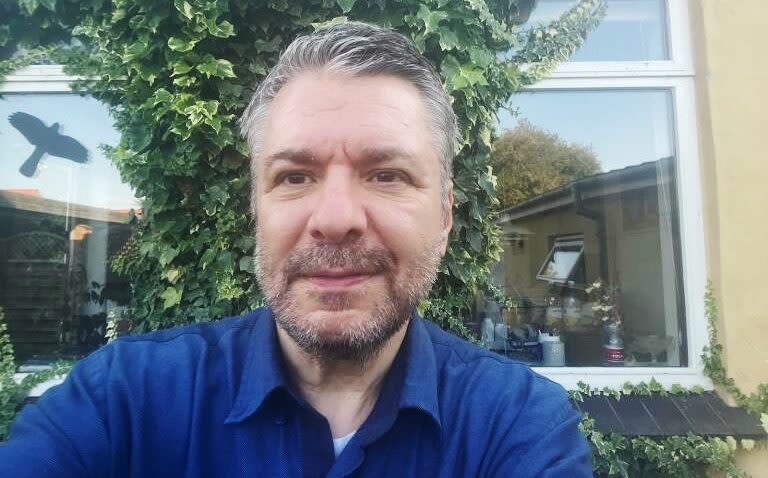When the British Museum revealed last August that hundreds of its precious artefacts had gone walkabout, it came as a shock to most of us – but not to Dr Ittai Gradel. As he told The Telegraph that month, this expert in ancient gemstones had stumbled across evidence of the thefts two years earlier. He repeatedly sounded the alarm to museum officials, only to be “fobbed off” and treated like a “village idiot”. Undeterred, he kept digging.
Working from what he playfully calls his “lair” on a remote Danish island, Gradel pieced together evidence pointing to the leading suspect in the theft – one of the museum’s curators, who has since been sacked. When the King’s Birthday Honours are announced in June, I hope to see Gradel’s name on the list. Give the man an honorary knighthood for his services to Museums and Heritage – with, if possible, a tiny secondary citation for his services to broadcasting. Because Gradel, it turns out, is also extremely funny on the wireless.
As the key interviewee in the gripping nine-part exposé Shadow World: Thief at the British Museum (BBC Sounds, plus Radio 4 all this week and concluding next Thursday), he’s far more fun than you’d expect any mild-mannered Danish expert in Greco-Roman miniatures to be. One former university colleague calls him “a big character”, which has the ring of a backhanded compliment.
He claims to have a photographic memory, and at one point declares: “I am the only normal person in the world – all the rest of you are weirdos.” He’s been compared to Sherlock Holmes; the triumphant final episode proves he has a pinch of Indiana Jones, too.
In it, he is recorded turning up at the museum, unannounced, with a sackful of recovered gems. “I haven’t told the British Museum about it, because they would have to advise me, of course, to comply with all the rules and regulations – apply for a Danish export licence, blah, blah, blah, all this form-filling b—-cks”. Instead, he cheekily opted to “just plonk the objects before them and say, ‘here you are, you can have your gems back’”.

It’s the climax of a riveting nine-part series, in which we hear how he not only uncovered the theft and fingered the lead suspect, but went on to hunt down and acquire stolen gems that had unwittingly been bought by collectors around the world. This was done “at great personal cost”, while severely ill, following a terminal cancer diagnosis. (He’s now in remission.)
At one point, the presenter, Katie Razzall, gently asks why he’d spend his final weeks helping a museum to get its gemstones back. He laughs the question off: “You can’t spend your entire day concentrating on dying.” The sacked curator, who denies any wrongdoing, refused to speak to the BBC.
In the interests of balance, we heard from an anonymous former colleague, who said that she thought he must have been framed – on the grounds that surely he couldn’t be that much of an idiot – as well as British Museum trustee and former part-time Chancellor of the Exchequer George Osborne, who piped up to say he was “100 per cent certain we’ve got our man”.
The real crime is the museum’s appalling handling of this situation from start to finish; oblivious to years of disappearances, then slow to act on the tip-off, either from shame, incompetence, or possibly even internal efforts to sabotage an investigation.
Some listeners might be shocked to learn how ignorant the British Museum was about what it had in its own cupboards. Malcolm Hay, an antiquities dealer, painted an image of an institution rapaciously hoovering up stuff that it couldn’t actually process responsibly, stuffed with items that “they don’t display, they never catalogue, they never photograph, they probably don’t want – why, why, just why?”
I began to wonder whether the British Museum deserved its gems back after all. If you know anyone who works in one of our major museums, you won’t be surprised to learn that cost-cutting has eroded its core responsibilities. In the Science Museum Group’s brutal recent redundancies, for instance, those poor souls beavering away in the archives and records department were wiped out en masse. Because why should a museum bother to keep track of things?
Still, at least in the British Museum’s case there’s a happy ending. Thanks to Gradel et al, 10 of the stolen gems feature in a free British Museum exhibition, running till June 6, where we can marvel at these millennia-old treasures – at least until the next time they’re shoved in a box, then forgotten about, then nicked.
Source Agencies


